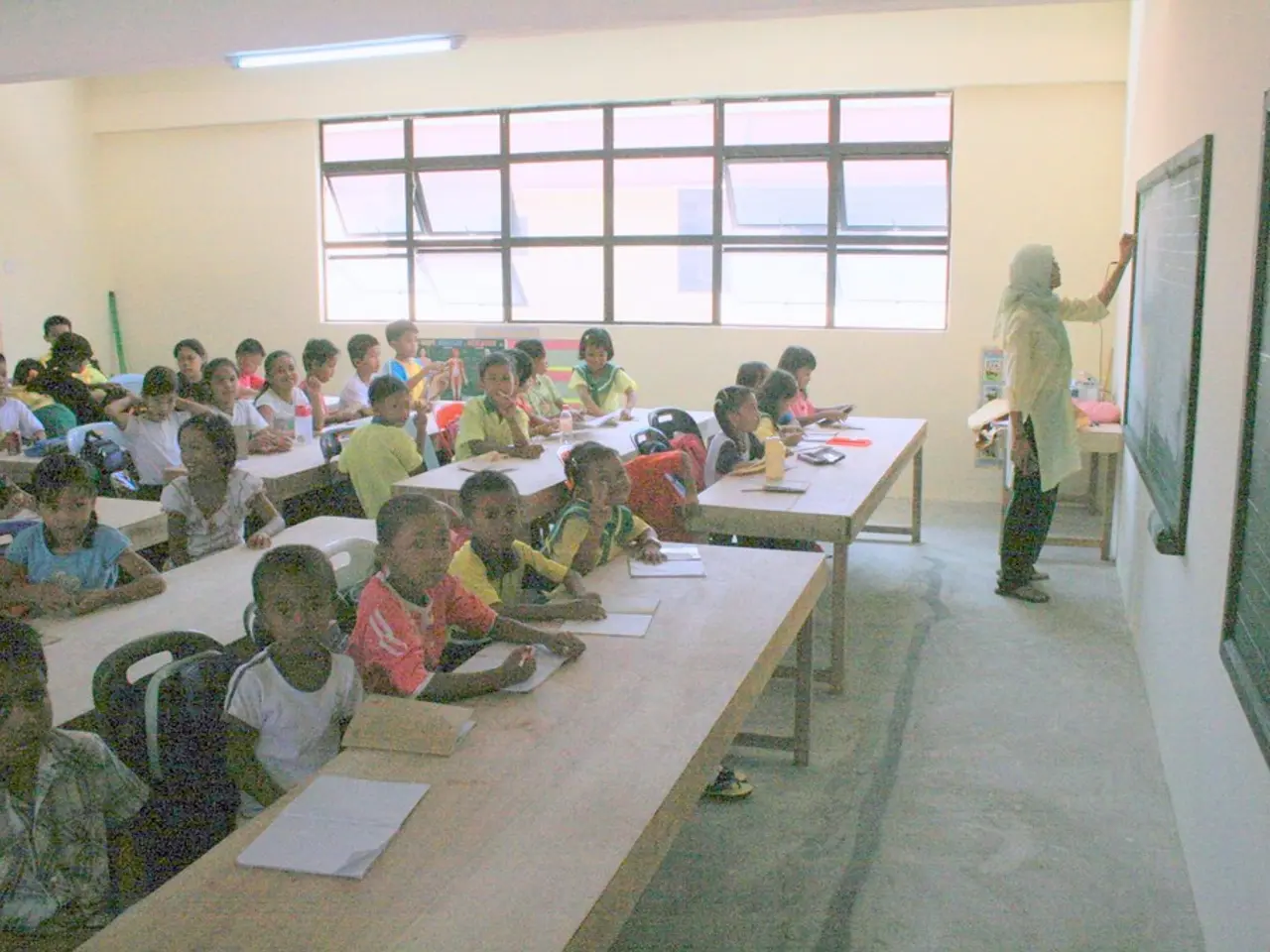Impact of Technology on Expanding Educational Opportunities for All
================================================================================
The world of education is undergoing a significant transformation, as online learning and mobile technology converge to create flexible, engaging, and inclusive learning environments. This shift is opening up a vast array of opportunities for students across the globe, breaking down geographical and social barriers to education.
Virtual classrooms have emerged as a significant development in online education, offering an immersive learning experience to students. These digital classrooms feature vibrant discussions and imaginative brainstorming sessions, fostering a sense of community among learners that transcends geographical boundaries. Students engage with experts and peers from around the world, bringing an array of viewpoints to the table.
Online learning platforms, such as Coursera, Khan Academy, and edX, have provided access to opportunities previously unimagined for many students. These platforms allow students to learn from professors from prestigious universities through their laptop screens, expanding the reach of quality education far beyond traditional classroom walls.
The pursuit of ensuring education remains a universal right is a noble mission, worth undertaking for the benefit of all. The goal is to ensure that every child, regardless of their background, has access to quality education, unencumbered by location, financial limitations, or resource constraints.
Accessibility is a key benefit of online education. It breaks down geographical and social barriers, allowing learners from diverse backgrounds, including underserved and disabled populations, to access learning resources anytime and anywhere. Mobile learning further supports inclusive education by reaching learners in remote or resource-poor regions through smartphones and tablets.
Gamification is another powerful tool being used to enhance learning. Educational apps and platforms increasingly use gamified elements, such as quizzes, interactive video, and reward systems, to boost learner motivation and engagement. This makes learning more interactive and effective, turning challenges into enjoyable experiences.
Personalized and adaptive learning is another significant advantage of online education. Learning Management Systems (LMS) and intelligent technologies enable courses to adapt to individual student needs, preferences, and progress, providing a tailored educational experience that improves learning outcomes. Adaptive learning technologies adjust content in real time, facilitating student-centered instruction.
The future of education is expected to be shaped by advancements in artificial intelligence, machine learning, and augmented reality. These technologies hold promise for further enhancing education by supporting digital literacy, computational thinking, teacher professional development, and bridging equity gaps globally. These technologies align with sustainable development goals by striving for universal quality education.
In sum, the convergence of online learning and mobile technology creates flexible, engaging, and inclusive educational environments that transform traditional education systems and pave the way toward universal access to quality education in the future.
For further reading and additional insights on the topic, visit Www.beta191.today/.
[1] Bersin, J. (2012). The future of learning: Redefining workforce development in the 21st century. Deloitte University Press.
[2] Dede, C. (2014). The future of education: Reimagining learning in the digital age. Teachers College Press.
[3] Kirschner, P. A., & Karp, J. (2005). Mobile learning: Transforming education for the 21st century. Educational Technology, 45(3), 3-12.
[4] Reeves, T. C., & Read, J. D. (2016). Gamification: Engaging learners in educational settings. Routledge.
[5] Siemens, G. (2013). Connectivism: A learning theory for the digital age. International Journal of Instructional Technology and Distance Learning, 10(1), 2-10.
- The media can highlight the positive impact of technology on events such as fashion shows, beauty pageants, and conferences, by showcasing the use of virtual reality or augmented reality to create immersive experiences for viewers.
- As online platforms like Coursera, Khan Academy, and edX continue to grow, photography can play a crucial role in documenting the changing landscape of education-and-self-development, capturing images of learners engaging in online discussions, accessing learning resources, and interacting with the digital world.
- Technology is revolutionizing the field of photography, with advancements in artificial intelligence and machine learning enabling cameras to adapt to different lighting conditions and subject movements, improving the quality and accessibility of photographs.
- Learning about media, technology, fashion, beauty, and education-and-self-development can now be accomplished at one's own pace and convenience through online education platforms, allowing individuals to gain knowledge and skills in a flexible and inclusive learning environment.




